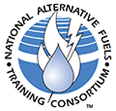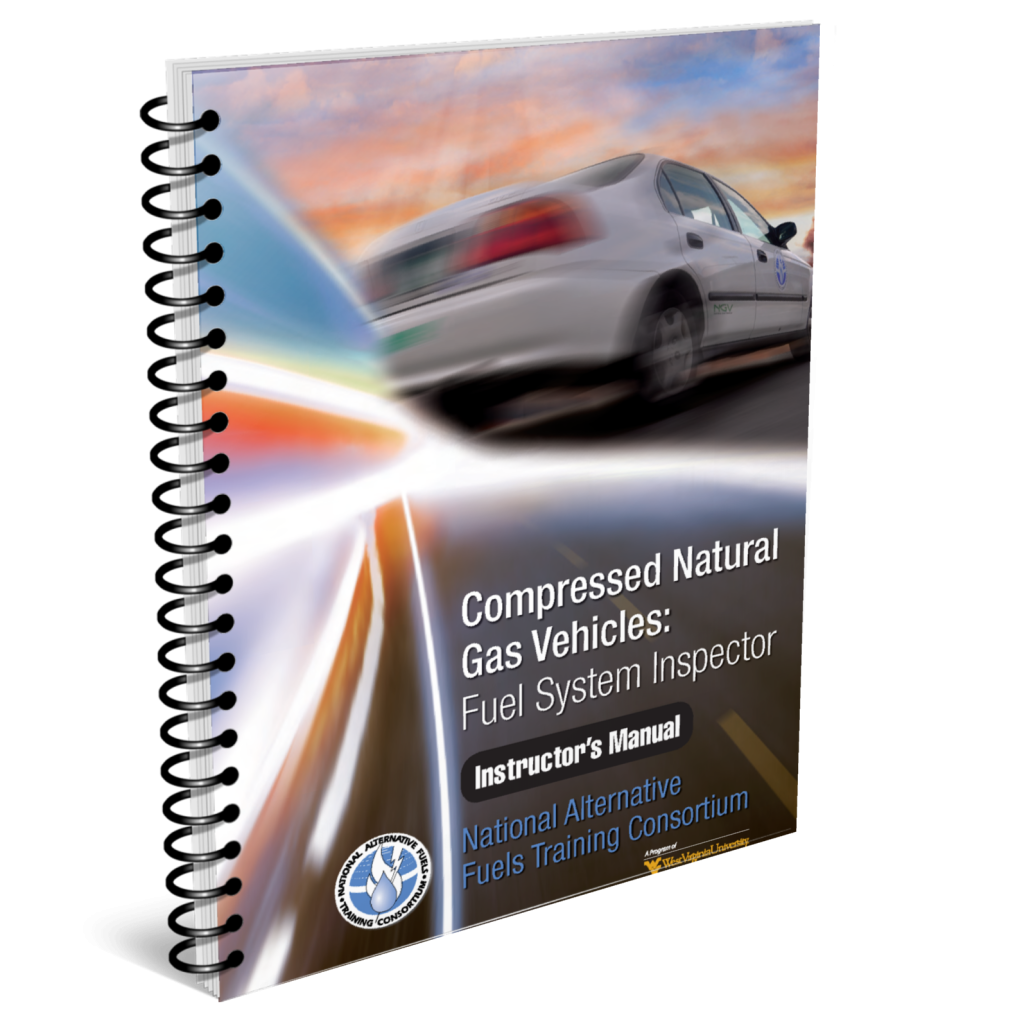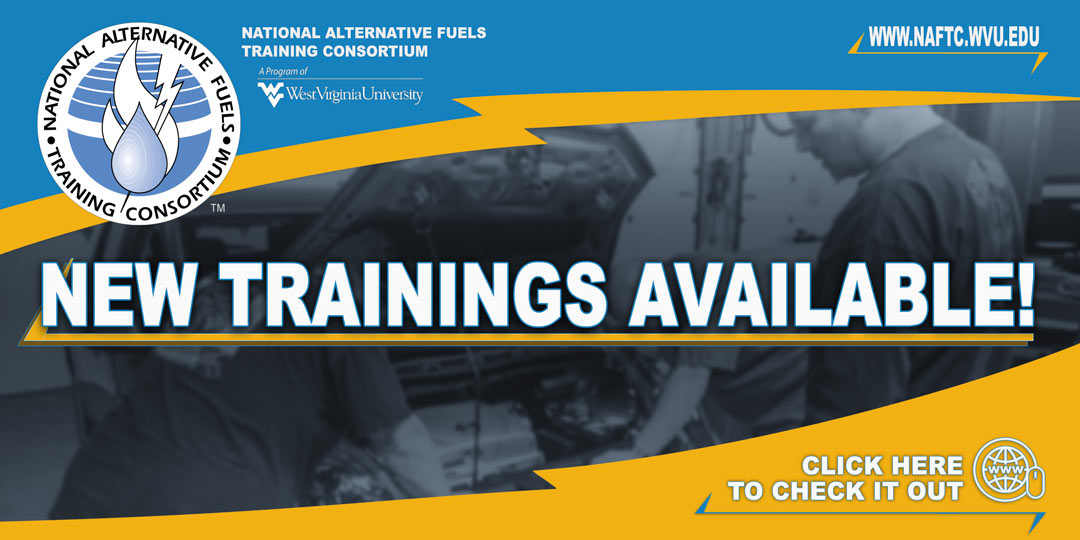Compressed Natural Gas Vehicles:
Fuel System Inspector
Available for groups only, this course informs participants about fuel system inspection of compressed natural gas vehicles. It covers theory, equipment, types of cylinders, and fuel system components used in CNG vehicles. Hands-on activities provide participants with the opportunity to perform CNG vehicle fuels system inspections. This course also explains what documents to study to be compliant with local and national laws
With additional study, this course may help prepare participants to become a certified CNG Fuel System Inspector by passing the CSA International standardized certification test for cylinder inspection. It is best to take this course after taking the Light-Duty Natural Gas or Heavy-Duty Natural Gas training. Participants who have taken this training have an excellent record of passing the CSA exam.
After completing this course, participants will be able to:
- Understand the types of cylinders and fuel system components in CNG vehicle systems.
- Inspect CNG cylinders and fuel system components for damage and deterioration.
- Identify construction techniques and materials used in CNG cylinders manufacturing.
- Recognize and diagnose various failures and faults.
- Vent and store CNG cylinders safely.
- Safely and confidently handle CNG cylinders and fuel lines related to the systems.
Modules:
- Introduction to natural gas and natural gas vehicles
- Natural gas vehicle fuel system components
- Applicable standards for fuel storage cylinders and pressure relief devices
- Physical assessment of CNG cylinders and pressure relief devices
- Preparation for CSA test
For more information email Cristina Dumitrescu at cristina.dumitrescu@mail.wvu.edu or call her (304) 293-6906
Course materials provided:
- Participant manual – ISBN 978-1-933954-19-6
- Each module contains:
- Illustrations
- Explanatory figures and tables
- Review questions
- Key terms
Course designed for:
- Fleet managers
- Automotive technicians
- Code officials / Authorities Having Jurisdiction (AHJs)
- Construction contractors
- Government officials / decision makers
- Clean Cities coalitions




